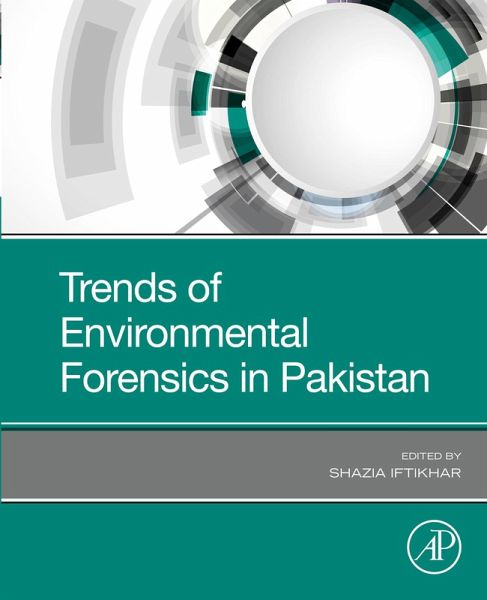
Trends of Environmental Forensics in Pakistan (eBook, ePUB)
Versandkostenfrei!
Sofort per Download lieferbar
63,95 €
inkl. MwSt.
Weitere Ausgaben:

PAYBACK Punkte
32 °P sammeln!
Trends of Environmental Forensics in Pakistan covers a variety of topics, including discussions on alterations in soil chemistry that are related to the malicious effects of pesticides, variations in biosphere and hydrosphere due to deviating toxicological responses, evidence and datasets to highlight potential crimes, and the advent of biological warfare and its effects across the globe, and exclusively in Pakistan. Pakistan, a country comprised of vast climatic zones, ethnic groups, diverse faiths and profound biodiversity is also vulnerable to different devastating incidents, hence this boo...
Trends of Environmental Forensics in Pakistan covers a variety of topics, including discussions on alterations in soil chemistry that are related to the malicious effects of pesticides, variations in biosphere and hydrosphere due to deviating toxicological responses, evidence and datasets to highlight potential crimes, and the advent of biological warfare and its effects across the globe, and exclusively in Pakistan. Pakistan, a country comprised of vast climatic zones, ethnic groups, diverse faiths and profound biodiversity is also vulnerable to different devastating incidents, hence this book presents tactics and information that are critical to this region. - Covers alterations in soil chemistry due to the malicious effects of pesticides, the variations in biosphere and hydrosphere due to deviating toxicological responses, and more - Uses evidence and datasets to highlight potential crimes - Highlights the advent of biological warfare and its effects across the globe (and exclusively in Pakistan)
Dieser Download kann aus rechtlichen Gründen nur mit Rechnungsadresse in A, B, BG, CY, CZ, D, DK, EW, E, FIN, F, GR, HR, H, IRL, I, LT, L, LR, M, NL, PL, P, R, S, SLO, SK ausgeliefert werden.













